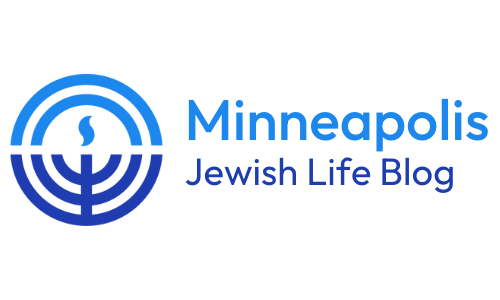Your impact in Ethiopia and Uganda
Ilana Shemesh with a Ugandan family
When you conjure an image of Jewish recipients of your generous support, what do you see?
My guess is you don’t initially turn to the image of Emey and her husband Melkamu, who live in a mud and straw hut in Gondar, Ethiopia. Or Joy,* a Ugandan woman who barely survived after giving birth on a grass mat in her village.
All too often, the stories of Jews in Africa are overlooked.
Earlier this month, Federation’s Women’s Philanthropy group teamed up with NCJW-MN to bring Israeli midwife Ilana Shemesh to the Twin Cities. Ilana recently opened a birthing center in the Ugandan village of Nabugoya, home to most of the country’s Jews. At her talk, Ilana painted a picture of an optimistic, stoic, and grateful community. She felt connected to the women she treats through Jewish customs and traditions—a familiar tune at Friday night services in the village synagogue, shared values of tikkun olam and pikuach nefesh—but could not ignore the differences in access to healthcare. In Uganda, 1 in 47 women die during childbirth, and 1 in 19 babies don’t survive the first year of life.
In Ethiopia, many families like Emey and Melkamu’s have been fractured for nearly a decade due to Israeli restrictions on Ethiopian immigration. In the 1970s Israel opened its doors to Ethiopians looking to make Aliyah and leave the dangerous conditions of the country—but only if their Jewish lineage was maternal. Often, with the help of Federation partner The Jewish Agency for Israel, families sent those who qualified to make Aliyah while others stayed behind. Emey has finally been granted permission to go, but new restrictions are forcing her to leave behind her husband and three of her children. The Jewish Agency is fighting for these families to be reunited.
The history of the Jewish people and the African continent and Americans who descend from it, is long and admittedly, mixed. Israel’s Meir-era quest for African votes in the United Nations at the expense of turning a blind eye to human rights abuses and the knowledge that North American Jews participated in the Atlantic slave trade must be included as part of the narrative. But the legacy of Jewish freedom riders and the fact that our overseas partners do so much today to help ease people’s burdens in Africa, both Jews and gentiles, is encouraging. Particularly when relations in our community are justifiably strained by insults to our past, we should take pride in what good works are done to make the world a better place.
The extent of suffering and opportunity in our world is almost unimaginable. This, I think, is one of Federation’s greatest assets—our ability to bring to light the stories of Jews where you might least expect them—and to find tangible ways to fold them into our global Jewish community.
Shabbat Shalom,
Jim
*name has been changed

